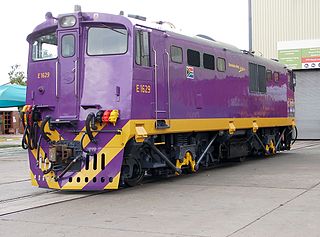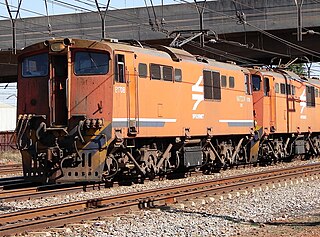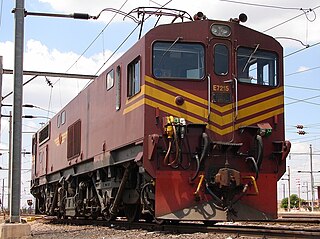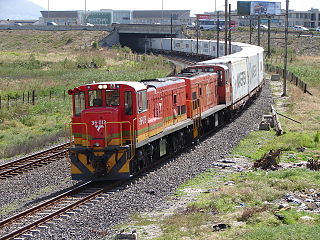
The Blue Train travels an approximately 1,600-kilometre (990 mi) journey in South Africa between Pretoria and Cape Town. It is one of the most luxurious train journeys in the world. It boasts butler service, two lounge cars, an observation car, and carriages with gold-tinted picture windows, in soundproofed, fully carpeted compartments, each featuring its own en-suite. The service is promoted as a "magnificent moving five-star hotel" by its operators, who note that kings and presidents have travelled on it.

Rail transport in South Africa is an important element of the country's transport infrastructure. All major cities are connected by rail, and South Africa's railway system is the most highly developed in Africa. The South African rail industry is publicly owned.

Metrorail is an operator of commuter rail services in the major urban areas of South Africa. It is a division of the Passenger Rail Agency of South Africa (PRASA), a state-owned enterprise which is responsible for most passenger rail services in South Africa. The Metrorail system consists of 471 stations, 2,228 kilometres (1,384 mi) of track, and carries an average of 1.7 million passengers per weekday.

Transnet Freight Rail is a South African rail transport company, formerly known as Spoornet. It was part of the South African Railways and Harbours Administration, a state-controlled organisation that employed hundreds of thousands of people for decades from the first half of the 20th century and was widely referred to by the initials SAR&H. Customer complaints about serious problems with Transnet Freight Rail's service were reported in 2010. Its head office is in Inyanda House in Parktown, Johannesburg.

Cape Town railway station is the main railway station of the city of Cape Town, South Africa. It is located along Adderley and Strand Streets in the city's central business district.

The Passenger Rail Agency of South Africa (PRASA) is a South African state-owned enterprise responsible for most passenger rail services in the country.
The Trans Karoo Express, or simply Trans Karoo, was a South African express passenger train service which travelled an approximately 1,600-kilometre (990 mi) journey between Johannesburg and Cape Town. It operated daily in each direction, meaning that there were in fact two Trans Karoos - they passed each other during the night, heading in opposite directions. The service was operated by Spoornet, the national railway company.

The South African Railways Class 6E1, Series 4 of 1973 was an electric locomotive.

The South African Railways Class 6E1, Series 5 of 1974 was an electric locomotive.

The South African Railways Class 6E1, Series 6 of 1976 was an electric locomotive.

The South African Railways Class 6E1, Series 7 of 1977 was an electric locomotive.

The South African Railways Class 6E1, Series 8 of 1979 was an electric locomotive.

The South African Railways Class 7E is an electric locomotive. South African Railways placed 100 Class 7E electric locomotives with a Co-Co wheel arrangement in service in 1978/79. They were the first 25 kV AC locomotives to enter service in South Africa.

The South African Railways Class 7E2, Series 2 is an electric locomotive. South African Railways placed 40 Class 7E2, Series 2 electric locomotives with a Co-Co wheel arrangement in service in 1983.

The Spoornet Class 18E, Series 1 of 2000 is a South African electric locomotive.

The South African Railways Class 34-000 of 1971 is a diesel-electric locomotive.

The South African Railways Class 35-200 of 1974 is a diesel-electric locomotive.

The South African Railways Class 35-600 of 1976 is a branch line diesel-electric locomotive.

The South African Railways Class 36-000 is a diesel-electric locomotive.

The Passenger Rail Agency of South Africa Class Afro 4000 of 2014 is a South African diesel-electric locomotive.




















